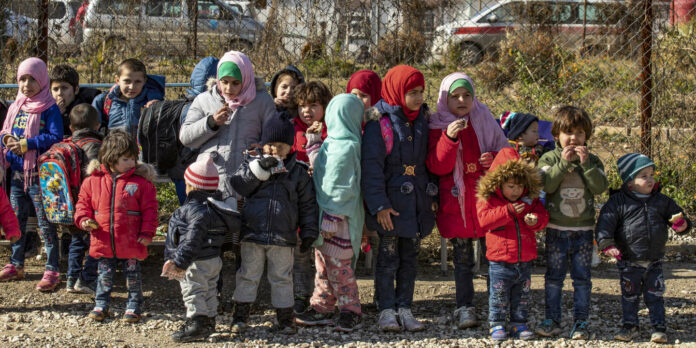On Thursday, March 11, 2021, the Tunisian authorities received children and women from the sons and wives of Tunisian fighters in the ranks of the terrorist organization ISIS (Daesh) from the Libyan authorities.
This step leads us to question the role of state institutions in protecting these minors and the methods it may adopt to integrate them into society.
Down Payment
The head of the Tunisian Observatory for Human Rights, Mustafa Abdel-Kabir, revealed to “JDD”, today, Friday, March 12, 2021, that the Libyan authorities handed over their Tunisian counterpart yesterday, 5 unaccompanied children, and 3 women, sons and wives of Tunisians who fought in the ranks of the terrorist ISIS, through the Ras Jdir border crossing.
He said that this is the first batch of children who have been trapped in conflict areas for years in Libya, Syria and Iraq, referring to the diplomatic efforts made by Tunisia in cooperation with civil society organizations to bring them.
And he explained that the Tunisian security units arrested the three women to verify that they were not wanted in pending cases in Tunisian soil, after the Libyan judiciary released them in 2020.
Abdel Kabir indicated that about 17 children and 12 women are still stranded in Libya and will be brought in batches during the coming period after preparing for this logistically at the level of Tunisia, adding that there are another number of women and children stranded in the Hasakah camp on the Syrian-Turkish border, and another number in Iraq whose total number ranges between 170 and 180.
What is the Fate of the Children?
On the other hand, the General Director of Childhood, Shokri Maatoug, confirmed to “JDD”, that the five children were placed in a childcare institution in the capital, where they were received by a team of psychologists, social workers, and others.
He added that the state has pledged to children between the ages of 5 and 15 years, and will take care of them psychologically until it is possible to find whoever receives them from members of the extended family, given that they came unaccompanied by a parent, after conducting social and security research.
Maatoug explained that if someone is not found to receive one of the children, the state will continue to take care of them and they will be placed in one of the specialized centers.
After the Trauma
In this context, the expert in the field of childhood and family, Ibrahim Al-Rihani, stressed, in a statement to “JDD”, that children who return from hotbeds of tension are the most affected by what they have gone through, which will affect them psychologically and socially through post-traumatic repercussions due to the scenes that they were subjected to such as violence, killing, intimidation and displacement.
And he indicated that this trauma calls for a psychological commitment, in addition to the social stigma that will continue to pursue them, and therefore it is necessary to prepare for the reception process by the extended family because of the importance it has in the process of psychological rehabilitation and reintegration into society. Al-Rihani says that such situations require close intervention, passing through several stages starting from reception in the institution that embraces these children, passing by integration into the receiving family and then integration into educational institutions, and therefore they need a thoughtful psychological, educational and social intervention project that guarantees their reintegration within society and reducing the psychological effects as a result of that, by strengthening self-esteem and accompanying them to adapt to the new situation.








